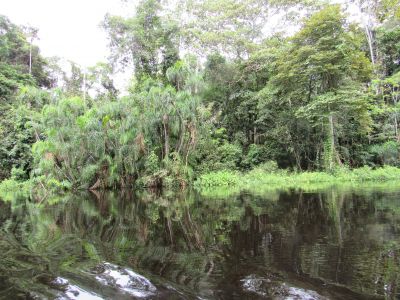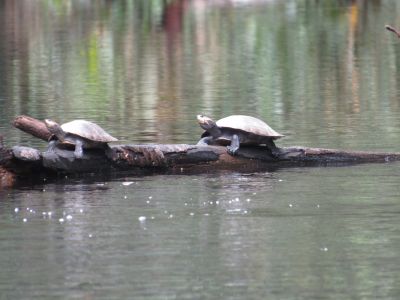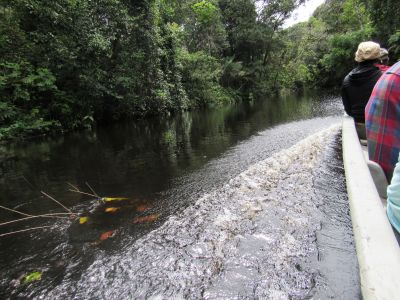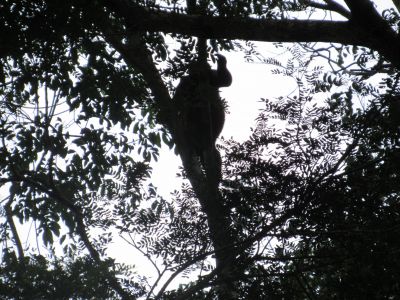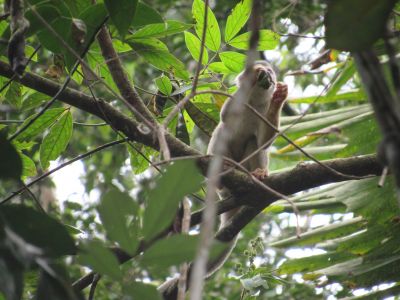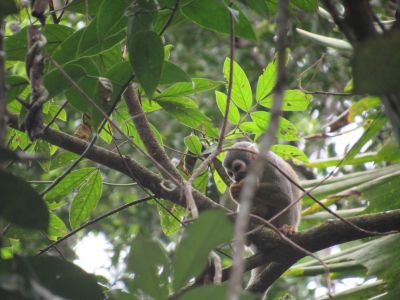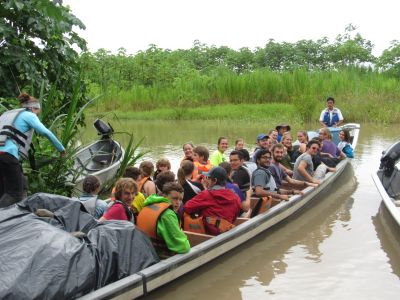This is Christian Bechler’s account on a canoe ride down the river, set in the context of “ecological economics”:
One morning an economics class convened unexpectedly. It taught about Human Capital, but also that economics lessons can happen at any time. Then in the afternoon the lesson was repeated.
Natural Capital: the river Zabalo, black from the decaying leaves of the jungle canopy above, provides a de facto causeway for Physical Capital: Cofan canoes and ores, carved from huge trees, composing the posts for the canopy above, carrying goods and people for trade or travel, or in this case, Human Capital: namely, three high school diplomas (Peter Schrock, Cecilia Lapp Stoltzfus, and Christian Bechler) working through college degrees with little, but some, knowledge of how to canoe with no Financial Capital and little Social Capital shared between the three.
Without adequate knowledge we rode and tipped, not knowing a trade, human and social capital for physical, would soon occur. Awkwardly angled, we tried to improve our boatsmanship, by passing our boat through a variety of obstacles. Awkwardly angled, we failed, flailed, and fell face-first into the aforementioned black water—take note: a trade in action, but no time to think about it now.
Clutching branches and boots, I am handed a life jacket too. Clutching boots and boat, we float down river developing a plan to pull our canoe out of water. Clutching boat and branch, Peter pulls himself onto the high bank. After a tedious trading of boat, branch and boot clutching, we manage to reassemble ourselves within the canoe.
Only then did we have time to reflect upon the trade which had occurred. Lost: Physical Capital, namely one rubber boot and a pair of glasses. Gained: Social Capital, a shared connection and story with an incredible experience, and Human Capital, the ability to flip a canoe and an extra lesson in economics.
